Raising a few chickens for meat is a good way to fulfill your family nutrition demands. At the same time, raising chickens for meat is a fantastic, interesting, exciting and rewarding experience also.
If you love animals and have time, space and want to produce fresh foods of your own for your family, then you should consider raising chickens for meat. Nowadays, general health conscious people are becoming interested in organic foods and some of them want to produce fresh foods by their own.
That’s why raising chickens for meat at home is becoming a popular practice in almost every parts of the world. Meat chickens are also called broilers and raised mainly for meat production.
Raising Chickens for Meat
Chickens that are raised commercially in large farms are smaller and lower in quality than the chickens raised in a backyard flock. Raising a few chickens for meat is surprisingly easy.
And people of all ages and professions can raise a few chickens for meat and it’s also suitable for the people who have limited space. However, here we are describing more about the procedures of raising chickens for meat.
Choosing Breeds
Choosing quality breeds is very important. Most of the meat chicken breeds grow faster and reach slaughtering age earlier. They are truly a breed apart from laying chicken breeds.
Although, laying chickens also produce meat. But they take long time to grow and older chickens tend to be tough and stringy. Most of the commercial broiler farms used to raise Cornish Rocks chicken. Cornish Rocks is not a pure breed.
They are result of cross between a Cornish rooster and a White Plymouth Rock hen. Cornish Rocks grow big very quickly and become suitable for slaughtering within 6-8 weeks.
There are also some other broiler chicken breeds available. If you want to grow free range broilers then Indian Game (Cornish), Ixworth, Hubbard, Sasso etc. will be most suitable for you.
There are some dual purpose breeds also which produce some eggs and quality meat at the same time. Dorking, Ixworth, Sussex, Transylvanian Naked Neck, Orpington etc. are some dual purpose breeds.
You can also consider some heritage or multipurpose breeds for meat production. Delaware, Holland, New Hampshire, Plymouth Rock etc. will be most suitable for the same.

If you plan for raising few chickens, then you can go with any breed. We prefer dual purpose pure breeds for meat production instead of any crosses.
Where to Buy Meat Chickens?
This is a most important question people ask. To be frank, it’s really tough for us to tell the exact location from where you can purchase the breeds. Please contact any poultry chick supplier in your area.
Ask them which breeds they have and also ask whether they can manage your desired breed or not. Poultry breeders/chick suppliers have a network and hope they will be able to help you getting your desired breed.
If they can’t find anywhere, then you should consider importing the breeds from the origin country or location.
Raising Chicks
Raising chicks is vary important part of the meat chicken rearing journey. You have to setup everything before bringing the chicks to your home. After arriving the chicks to your home, you have to take good care of them for the next few days or weeks. Follow the steps mentioned below.
Setting up The Brooder
Brooder is a must for keeping your birds contained, clean and warm. Setup your brooder before arriving the chicks. You can either make the brooder yourself or take help form others. Keep in mind that, the container (which you are using for making the brooder) must have to be more than 12″ high and there are no needs to have a top.
The brooder also does not have to be fancy, because the chicks will live in the brooder for 3 weeks only. It will be enough if the brooder is suitable enough for proving warmth, ventilation and protection from predators. Ensure at least 3/4 square feet space available for each chick. Cover the floor of the brooder with about 4 inches litter.
You can use husk or wood shavings as litter. You can also use newspaper. Place a heat lamp above the brooder. Chicks need 95° Fahrenheit temperature for the first week. Reduce the temperature of brooder every week at the rate of 5° Fahrenheit per week until it reaches 70° Fahrenheit.
Use a small waterer inside the brooder so that the chicks don’t drown. Use starter chick feed for the first few weeks and then use grower feeds.
Caring Growing Birds
Caring growing birds is easy compared to raising chicks. At this stage, you have to feed them grower feeds. In case of free range chickens, you can allow them to browse pasture when they are fully feathered.
Making a Coop
You can move your birds to a new big coop after 3 weeks. Build a coop/house for your birds according to their numbers. On an average, meat chickens require about 2-2.5 square feet flooring space.
Keep this in mind while building coop/house for your birds. There are numerous designs available. Search online for some designs which is perfect for your needs. Ensure proper ventilation system and clean their house on a regular basis.
Feeding and Watering
Provide your birds with adequate nutritious foods. You can either choose ready-made foods or prepare the foods yourself. You can also feed kitchen wastes to your birds.

Depending on their age, provide them starter, grower and finisher feeds. And provide them sufficient amount of clean and fresh water according to their demand.
Health Care
Taking good care of your birds will keep them free form almost all types of health problems. Vaccinate them timely so that they stay free from diseases or sickness.
Raising Meat Chickens on Pasture
You can raise your meat chickens in a house with a small run attached. But allowing them to a pasture will improve their meat quality. For family use, we love raising the meat birds on pasture.
The meat of the chickens which are raised in pasture is higher in omega-3s and better in taste. And your birds will grow in a happy environment. It’s also very enjoyable and pleasuring to monitor the activities of meat chickens in a pasture.
They will keep your pasture clean and free from bugs. Along will this, you will notice the feeding costs reduced dramatically. Heritage or multipurpose chicken breeds will be very suitable for raising in pasture.
If you raise a few birds and don’t consider it as a business, then raising chickens for meat is a great option for you. It will give you much pleasure and entertainment and home grown fresh foods at the same time.

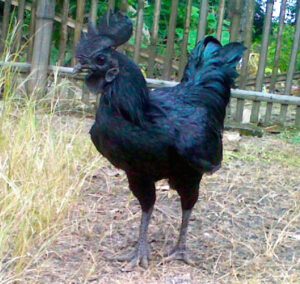
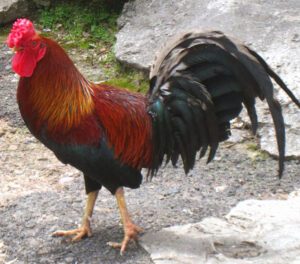
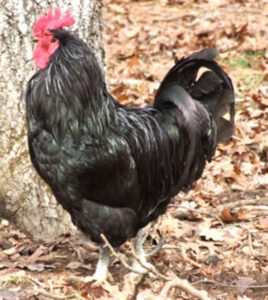
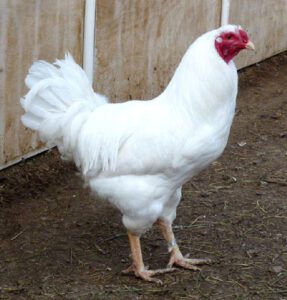
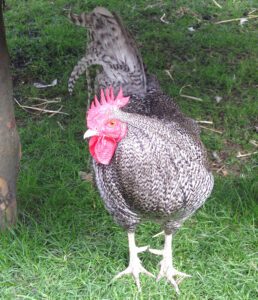
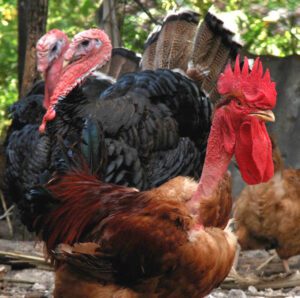
informative and inspiring